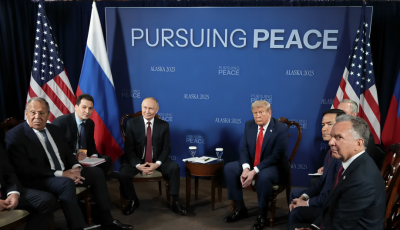Chinese EV Makers Defy EU Tariffs, Surpass Tesla in European Market Surge

When the European Union imposed steep tariffs on electric vehicles made in China last year, it seemed like a major setback for companies like BYD and other Chinese automakers.
But Chinese manufacturers quickly adapted. They shifted focus to hybrid and gasoline-powered vehicles that were exempt from the tariffs, introduced lower-cost models, and concentrated their sales in Southern European markets like Italy and Spain, where German and French automakers hold less sway.
Despite tariffs of up to 35% for some firms, Chinese brands doubled their market share in Europe this April compared to a year earlier, according to registration data from research firm JATO Dynamics. This growth reflects the agility and manufacturing strength of firms like BYD, Geely, Chery, and SAIC.
“These massive Chinese companies have the power to do whatever they set their minds to,” said Pier Giacomo Cappella, managing director of a dealership chain in Italy that sells DR brand cars manufactured by Chery.
While German automakers typically take two years to launch a new model, Cappella noted that Chinese companies can do it in just six months.
One of his showrooms in Rome features the ICH-X K2, a diesel off-road vehicle resembling a Jeep Wrangler. Yet it sells for €51,500 (around $60,000)—roughly $10,000 less than its American counterpart.
Although Chinese car brands held just 4.9% of the EU’s new car market in April—equivalent to 53,000 vehicles—that figure had doubled from 2.4% a year earlier.
Even in electric vehicles, Chinese makers saw a rebound. After an initial slowdown, electric vehicle sales by BYD and others jumped 59% in April, compared to a 26% rise among all other automakers, JATO reported.
Currently, about 1 in every 5 electric vehicles sold in Europe is made in China, according to Schmidt Automotive Research.
Tesla Feels the Pressure
Much of the growth for Chinese firms has come at Tesla’s expense. The American EV giant saw a sharp drop in European sales, partly due to public backlash against CEO Elon Musk’s political views, including his support for far-right parties in Germany, France, and the UK.
In April, BYD narrowly outsold Tesla in electric vehicle registrations in Europe, with 7,231 units versus Tesla’s 7,165. The newly refreshed Tesla Model Y hasn’t reversed the decline—at least not yet. The EU tariffs are based on the level of government support received by manufacturers in China. Ironically, this has led Chinese automakers to prioritize hybrid and gasoline vehicles—undermining the EU's climate goals.
Only one-third of Chinese vehicles sold in Europe in Q1 2025 were electric. The rest were hybrids or gasoline-powered, which are tariff-exempt.
“That’s one of the ironies,” said Matthias Schmidt, head of Schmidt Automotive. For example, Tesla cars made in Shanghai face an 8% tariff, SAIC’s MG brand cars face 35%, and BYD EVs are subject to 17%, on top of the EU’s standard 10% vehicle import tariff.
Though best known for EVs, Chinese manufacturers are now offering what the market demands. This strategy has proven effective in markets like Italy, where the lack of charging infrastructure has made electric vehicles impractical.
Gabriele Gabrieli, commercial director at Leonori, a Rome-based dealership that primarily sells Stellantis brands like Peugeot and Citroën, added a BYD showroom last year. Two-thirds of BYD vehicles sold there are hybrids. “It’s very difficult to own an electric vehicle in Rome,” he explained.
Traditionally, foreign automakers have struggled in Europe. In Germany and France, buyers tend to favor domestic brands like Volkswagen, Renault, and Peugeot. Volkswagen controls 28% of the EU market, while Stellantis (Peugeot, Citroën, Opel) holds 16%.
Yet in Q1 2025, two-thirds of Chinese car sales occurred in Italy, Spain, and the UK. Britain, no longer in the EU, doesn’t impose extra tariffs on Chinese brands. Italy’s once-loyal buyers have turned away from Fiat, and neither Spain nor the UK has a dominant national brand.
Chinese automakers are also gaining ground more rapidly than longstanding foreign players like Hyundai and Toyota, each holding 8% of April’s EU market. In contrast, Ford’s share has dwindled to 3%, and General Motors has a limited footprint.
Production in Europe to Accelerate Growth
Chinese automakers are planning local production to bypass tariffs altogether. BYD is set to begin manufacturing in Hungary and Turkey in 2025—markets from which vehicles will enter the EU tariff-free.
“When they start producing in Hungary and Turkey, their growth will skyrocket,” said Felipe Munoz, a global analyst at JATO. One potential future customer, Fabrizio Trentino, visited the BYD showroom in Rome recently while applying for a taxi license. He was impressed with the display model, saying, “It looks good. Long-term, it could save money—no oil changes, and electricity is cheaper than gas.”
Still, Trentino later said the upfront price was too high: “I’ll probably get a BYD as my next car—once I’m richer and they’re hopefully cheaper.”













तपाईको प्रतिक्रिया दिनुहोस